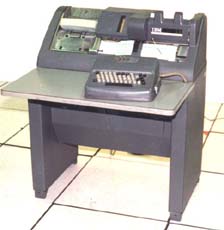wabmester
Thinks s/he gets paid by the post
- Joined
- Dec 6, 2003
- Messages
- 4,459
The father of FORTRAN, the "B" of BNF, John Backus died on Saturday.
NY Times obit
I was already programming on micros in the late 70's, but the engineering program required a FORTRAN course. Using IBM punch cards. As painful as it was, I'm sure it was better than what came before....
NY Times obit
I was already programming on micros in the late 70's, but the engineering program required a FORTRAN course. Using IBM punch cards. As painful as it was, I'm sure it was better than what came before....

